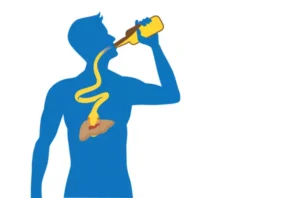
The problem is that there’s a fine line between ‘moderate’ and ‘excessive’, and in many countries, excessive drinking isn’t just tolerated, but also encouraged. For example, countries like the US and the UK are known for their drinking culture, since the consumption of alcohol is built into socialising. Indeed, in the UK, it’s estimated that nearly 25 per cent of adults drink more than the recommended daily units, and binge drinking is still a reality for 27 per cent of the population. And in the US, data show that 25 per cent of people over 18 engaged in binge drinking in the month before being interviewed. Sobriety after one year leads to improved mental health, with many individuals reporting reduced symptoms of anxiety and depression. Enhanced mental clarity and better emotional regulation are also common, allowing individuals to navigate life’s challenges more effectively without relying on alcohol.
Improved Relationships
As you let go of the booze, you might just find those jeans fitting a bit more loosely. Many people find that after they say goodbye to alcohol, they shed a few extra pounds without even trying. It’s benefits of living alcohol free not just about the numbers, though — it’s about feeling good in your own skin. Armed with this knowledge, the benefits of reducing alcohol or pursuing a sober lifestyle become even more pronounced.
You can try out the latest non-alcoholic drink alternatives, which – surprisingly – actually taste rather good
- Alcohol ads and public service announcements tell us to “Drink Responsibly,” but if you decide to embrace an alcohol-free lifestyle, it’s equally important to “Stop Drinking, Responsibly.”
- According to the National Survey on Drug Use and Health, 9.2 million U.S. adults had both mental health disorders and a substance use disorder in 2018, yet nearly 60% did not get treatment.
- In fact, Brits aged 65 and above are the heaviest drinkers, while 20 per cent of all adults claim to be non-drinkers, with those aged 16 to 24 being the largest group of teetotalers.
- Many who are considering a sober-curious lifestyle do so as a way to explore life without alcohol.
Add in a bit of junk food (helpful for battling a hangover) and it really adds up. Your waistline will thank you for cutting out all those empty calories. Heavy drinking can actually cause the part of the brain that’s critical to memory and learning (hippocampus), to shrink. One study found that around 70% of participants had sleep problems when they were admitted for alcohol treatment. That number dropped to 50% when the participants went home, and many reported that their sleep quality got better after treatment.

Reduced anxiety
It’s essential to find a strategy that resonates with you and fully commit to it, whether it’s a support group, therapy, or a personal wellness plan. Your commitment to the chosen approach is crucial, as it provides the foundation for a sustainable, sober lifestyle. In recent years, the term Sober Curious has become popularized for individuals who aim to dabble in sobriety without any hard set rules or regulations.
- The friend should be supportive of the goal, so choose someone who can fill this role.
- We increase our risk of a heart attack or stroke as well as dementia.
- Rediscovering hobbies and activities provides meaning and fulfillment.
- We implanted 118 loggers from 2016 to 2018 and were able to recapture 83 birds from 2017 to 2019.
- Excessive drinking can lead to the build-up of toxic, highly cancer-causing (carcinogenic) compounds that contribute to inflammation in your body, especially in your liver.
- A big part of alcohol recovery is taking steps to improve your lifestyle through changes like diet and exercise.
It’s completely normal to feel a wide range of symptoms and emotions at the start of 30 days without alcohol. Reaching out to a sobriety community or speaking with a specialized therapist can help you feel supported and encouraged as you begin this rewarding experience. Completing 30 days without alcohol is a huge accomplishment and https://ecosoberhouse.com/ it’s within your reach. In 2024, 25% of US adults who regularly drink alcohol completed the Dry January challenge. Whether you’re participating in a sobriety challenge like Dry January or Sober September, cutting alcohol out for good, or somewhere in between, there are certain changes you might expect during month one of sobriety.
You’ll actually DO stuff

In addition to the health benefits, when you stop drinking for any amount of time it automatically saves you money. Research shows that drinking large amounts of alcohol before bedtime leads to decreased sleep onset and disrupted, poor quality sleep later in the night. “I would suggest cutting back on several things rather than completely eliminating to avoid feeling deprived, which can lead to rebound eating/drinking and weight regain,” she said. For instance, Dasgupta cited research he conducted on the relationship between genetics and alcohol misuse. He noted that people of Chinese and Indian descent do not benefit from drinking alcohol due to a genetic reason that isn’t fully understood. “[The bottom line] is, protect the heart with [a] low amount of alcohol, but increase the risk of cardiovascular disease with high amount of alcohol,” Dasgupta said.
Changes in the First Year of Sobriety
- Alcohol cravings may continue to arise well into week 2 and beyond, and are likely to be strongest at a particular time each day.
- As the countless benefits of sobriety accumulate and become noticeable, commitment to the alcohol-free path strengthens.
- There are so many options, it’s likely there’s one out there for you – and switching means you can enjoy the health benefits of drinking less without losing your social life.
- These people play an integral role in getting you to where you are, and celebrating with them can be very special.
- The benefits of quitting drinking are often apparent soon after you stop, and will only continue to improve the longer you abstain from drinking.
- If you’re still feeling irritable, or if you’re not on the same page as your loved ones, that’s okay too!
- Armed with this knowledge, the benefits of reducing alcohol or pursuing a sober lifestyle become even more pronounced.
In Recovery

